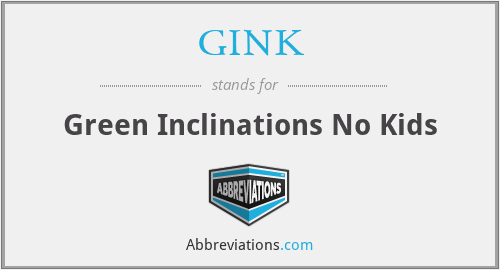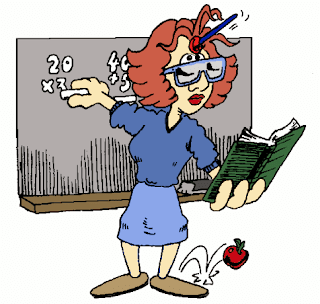bink, blink, brink, chink, cinque, clink, dink, drink, fink, gink, hink, inc, jink, kink, klink, link, mink, pink, plink, rink, shrink, sink, skink, slink, spink, stink, swink, sync, think, twink, wink, zinc, zink, zinke
Some of these words I've heard of, others not. The words in bold are what the site provides links to and are therefore the most common. Let's explore each and everyone of them. However, this would make the post very lengthy so I'll break things up. In Part 1, I'll examine the words from bink to hink.
PART 1: From bink to hink
bink: now this is word that I hadn't heard of but the official meaning is that it is a Scottish form of bench. There are numerous, and humorous, slang meanings as well. In Indonesian, the word for bench is bangku.
- in the blink of an eye - meaning very quickly as in:
Watch the baby closely, she can get into something dangerous in the blink of an eye. - blink-and-you-miss-it - meaning of such a brief duration or small size as to be easily missed as in:
I was excited to be in the movie, but it was really just a blink-and-you-miss-it part. - without (even) blinking an eye - meaning without having or displaying any sort of emotional response, especially to that which would normally elicit such a reaction as in:
When we were traveling, Janet used to eat things like crickets and jellyfish without blinking an eye.
The idiom "chink in one's armor" refers to an area of vulnerability. It has traditionally been used to refer to a weak spot in a figurative suit of armor. The standard meaning is similar to that of Achilles' heel. The phrase "chink in one's armor" has been used idiomatically since the mid-17th century. It is based on a definition of chink meaning "a crack or gap," dating back to around 1400. While the phrase itself is innocuous, its use in contemporary times has caused controversy in the United States due to it including "chink", a word that can also be used as an ethnic slur to refer to someone of Chinese or East Asian descent.
In these woke times, it may be only a matter of time before the phrase is removed from the language. Nonetheless, I did find the photo shown in Figure 2 rather funny.
 |
Figure 2 |
The word chink can be used as a verb meaning to make or cause to make a light, high-pitched ringing sound, as of glasses or coins striking together. It can also be used a noun in this sense to mean a high-pitched ringing sound as in "the chink of glasses" or "the chain joining the handcuffs chinked". I think the word clink, that we'll meet later, is more commonly used in this sense.
cinque: this word means five especially in dice or cards. It derives from Middle English cink, from Middle French cinq, from Latin quinque. It is pronounced as in "sink". The spelling and meaning is the same in Italian, but is pronounced differently as in "chinquay" (see Figure 3). The French spelling is cinq and pronounced something like "sank".
 |
| Figure 3 |
clink: apart from meaning a sharp ringing sound, such as that made by striking metal or glass as in "the clink of ice in tall glasses" or, as a verb, to strike (one's glass) against another's to express friendly feelings before drinking as in "she clinked her glass against mine".
 |
| Figure 4 |
 |
Figure 5 |
Rat Fink is one of several hot rod characters created by artist Ed "Big Daddy" Roth, one of the originators of Kustom Kulture of automobile enthusiasts. Roth conceived Rat Fink as an anti-hero to Mickey Mouse. Rat Fink is usually portrayed as either green or gray, comically grotesque and depraved-looking with bulging, bloodshot eyes, an oversized mouth with sharp, narrow teeth, and wearing red overalls with the initials "R.F." on them. He is often seen driving cars or motorcycles.
 |
| Figure 6 |
A footnote in the Wikipedia article explains that:
The term fink is underworld slang for an informer. It derives from the German word for "finch" — i.e. one who "sings" — and is comparable to a stool pigeon. Ratfink is an intensified version of fink. By the time Roth adopted the name for his character, the term had started to pass into the vernacular.More generally a fink is an unpleasant or contemptible person and to fink is inform on (someone) to the authorities as in "there was no shortage of people willing to fink on their neighbours" or to fail to do something promised or expected as in "administration officials had finked out".
gink: this is not a word with which I was familiar but it is commonly used as a slang term for a boy or a man who seems odd, foolish or contemptible as in "silly old gink". As an acronym it could stand for Green Inclinations No Kids as shown in Figure 7. This is reminiscent of the acronym DINK meaning Dual/Double Income No Kids.
 |
Figure 7 |
Colonel Blink, "The Short-Sighted Gink", was a British comic strip, drawn by Tom Bannister in November 1958 for the majority of its run, with a few later strips being drawn by Bill Ritchie and Gordon Bell in the same style as Bannister. The strip was published in the comics magazine The Beezer. Denis Gifford in his Encyclopedia of Comic Characters (1987) attributes his creation to "Carmichael." These days he occasionally appears in the reprint Classics from the Comics series.
 |
Figure 8: Mr. Magoo, a similar near-sighted character. |
hink: this is a now obsolete term for a reaping hook which a type of sickle used in harvesting. See Figure 9.
 |
| Figure 9 |
As usual, the Urban Dictionary comes to our aid to provide further definitions of the word. Here are some of the more amusing:
- The act of raising one's eye-brows in a provocative manner, suggesting the initiation of a sexual act as in "Dude are you hinking me or do you just have tourettes?'".
- A senseless action taken soley to fulfill an unexplainable impulse as in "Jaques: I just bought 175 purple porcelain racoons. Michel: Damn man that's was a hink and a half".
- Aberdeen/north east Scotland slang for think as when someone asks "U gan doon tae ih Shops" and the reply is "Aye hink so mate".
- Suspicious and illegal materials, often relating to identity theft and counterfeit material, such as credit card numbers and personal information as when someone asks "hey man, wheres mikes car?" and the reply is "I don't know but we have to clear all the hink out of it before the cops come looking".
- Mugged or robbed as in "Steven got hinked in a dark ally".








